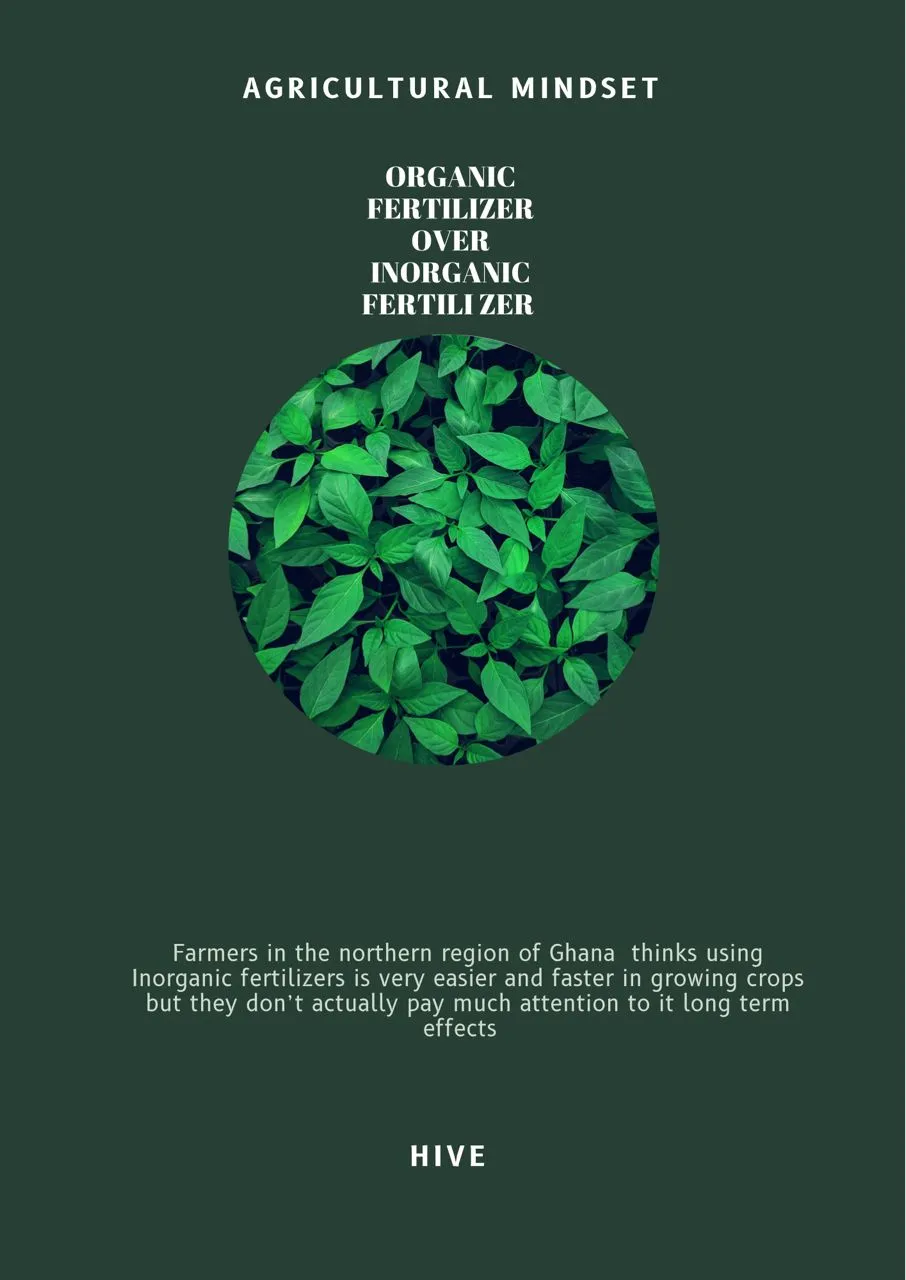Greetings to everyone on this page... It's always amazing and great to be part this community of people with agricultural mindset and I hope everyone is doing great. For the past months, I've been having this issue troubling my mind all the time and that issue has to do with people from the northern part of Ghana having practicing the use of inorganic fertilizers more over the use of organic fertilizers which has enormous effects on climate and the ecosystem at large and this has been so worriedsome and I thought it wise to make a case study to actually get to know the actuality of the issue.
**What is organic fertilizer? **
Organic fertilizers are comprised of plant or animal materials such as animal droppings and composted organic manure.
**Importance of organic fertilizers. **
It helps improve soil fertility by improving on the soil texture, soil structure and can also withstand irrigation that could wash away inorganic fertilizers etc.
**Some challenges faced in applying organic fertilizers. **
**What are inorganic fertilizers? **
Inorganic fertilizers are artificially or synthetic made fertilizers that contain minerals or chemicals and it could either be in a form of liquid or solid....examples of inorganic fertilizers include, NPK, superphosphate,ammonia,Potassium sulphate and many more.
What impacts does it have on plants?
1.Improves plant growth
2.enhance soil microbial activities.
3.Its easily applied and respond fast.
4.Takes little time to be absorb by moisture.
**Disadvantages. **
Demerits of inorganic fertilizers cannot be overemphasized and this is where my interest lies and that has to do with the damage it causes to our soils and to production.
Some of the disadvantages include.
*Most inorganic fertilizers contain salts that can burn plants .
*They require technical know how to be applied
*They do not im
prove physical properties of the soil .
*The nutrient it contain can easily be leached.
*And its very expensive to buy.
Apart from this disadvantages I mentioned, they contribute negatively to the ecosystem and long term changes the PH of soils,moreover,it builds up toxic chemicals that can also affect the soil and also contributes to soil acidification and soil crust which will lead to stunted growth of plants and the absense of organic matter or humus in the soil. This issue is so pathetic because our farmers haven't realized it but most of them who have tried organic farming have testified that it yield even more than the inorganic and also extends the fertility of the soil for future use.
Most pressing challenges with regards to the usage of organic fertilizers has to do with the labour intensive ,transportation and issuficiency but it's worth it because it has no long term effects on the soil.
And farmers must start practicing to avoid problems of not having food to eat in the future all because of infertile land to produce.
Despite the widely use of inorganic (chemical fertilizers) ,some number of farmers practice organic farming and there is a need to always encourage them more so other farmers can copy and learn these practices so that we can minimize the menace for a better tomorrow.
The existence of farmer groups will give a platform of learning to be able to lobby agricultural research organizations ,public and private extension service providers to engage them in education so they can always do the right thing for bumper harvest and always restoring the fertility of our agricultural lands.
**Thanks for reading!!!. **
